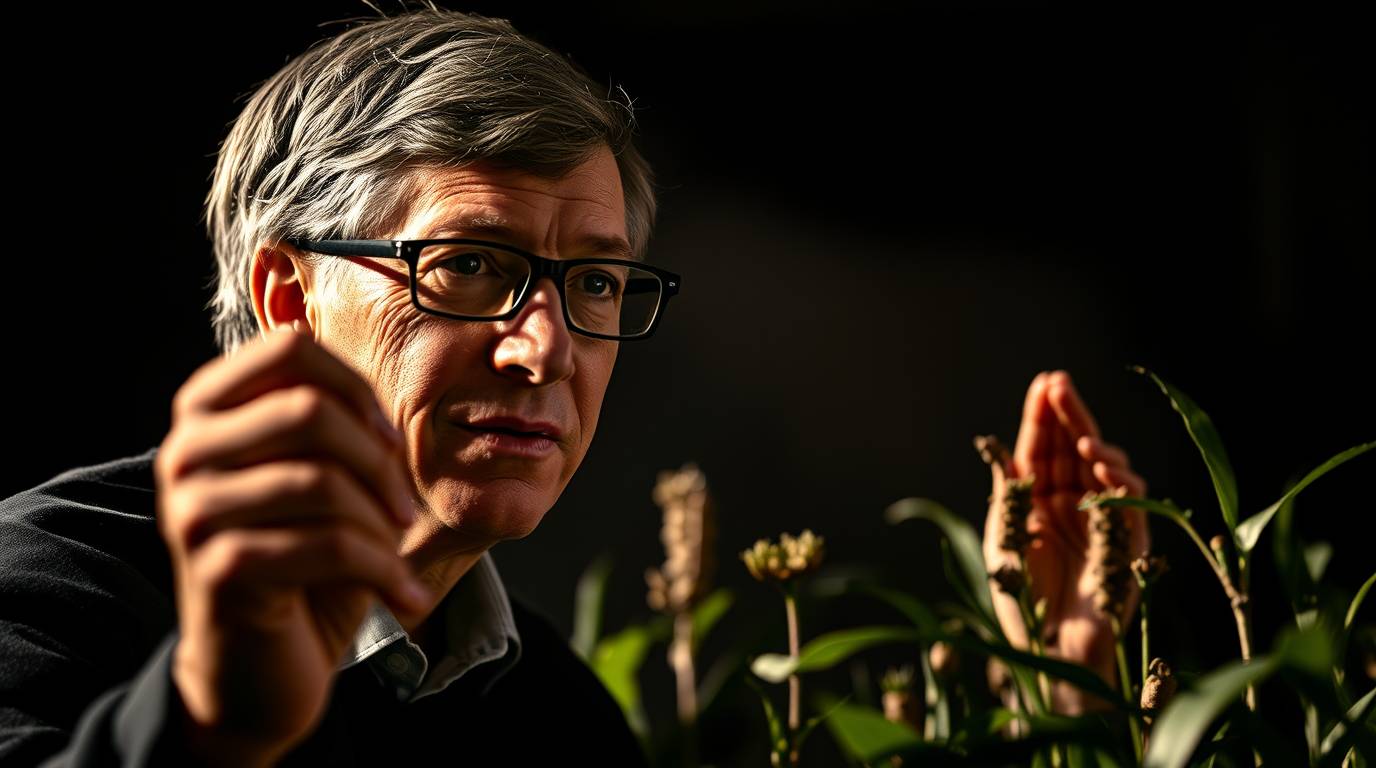
TL;DR The Alliance for a Green Revolution in Africa (AGRA), launched by the Gates and Rockefeller Foundations in 2006, has faced significant criticism for undermining traditional African farming practices. While promising to boost productivity and reduce hunger, the initiative has instead created dependency on corporate seeds, criminalized traditional seed-sharing practices, and failed to achieve its goal of reducing food insecurity. The program’s approach, modeled after the controversial Green Revolution in Asia, has sparked legal challenges and growing resistance from African farming communities fighting to preserve their agricultural heritage.
Gates Foundation’s African Farm Initiative Faces Mounting Criticism
In a controversial transformation of African agriculture, Western philanthropists’ attempts to modernize farming practices across the continent have sparked significant resistance and raised alarming questions about food sovereignty.
The Alliance for a Green Revolution in Africa (AGRA), launched in 2006 by the Bill and Melinda Gates Foundation and the Rockefeller Foundation, set out to revolutionize African farming. However, critics argue this initiative has undermined centuries-old agricultural practices and forced dangerous dependencies on Western corporations.
Traditional African farming methods, which have sustained communities for generations, are now under threat. An estimated 33 million small-scale farms across Africa, producing approximately 70% of the continent’s food supply, have historically relied on a system of saving, swapping, and sharing seeds. This practice has maintained biodiversity and ensured food security for countless communities.
“The traditional seed-sharing system has provided over 90% of the seeds planted by African farmers,” says a recent agricultural study. However, new legislation backed by AGRA is criminalizing these practices in multiple African nations.
In Kenya, the 2012 Seed and Plant Varieties Act exemplifies this shift. The law imposes severe penalties – including fines exceeding £6,000 or up to two years imprisonment – for farmers who trade uncertified seeds for commercial crops. Similar restrictions are being implemented across the continent, forcing farmers to purchase certified seeds from multinational corporations each planting season.
The consequences of this agricultural transformation are becoming increasingly apparent. In Zambia, once celebrated as an AGRA success story, the push toward commercial seeds and intensive fertilizer use has led to devastating results. Following the introduction of subsidies in 2009 encouraging over a million farmers to adopt these methods, the country has experienced crop failures during droughts, soil degradation from chemical use, and a 29% increase in undernourished population.
Corporate control over Africa’s seed supply has intensified, with companies like Bayer-Monsanto, Syngenta, and DuPont now controlling 60% of the global seed market and nearly 70% of agricultural chemicals. This consolidation of power is reinforced by international agreements like UPOV 91, which prioritizes corporate plant breeding rights over traditional farming practices.
The Gates Foundation’s involvement has raised additional concerns about conflicts of interest. The foundation’s purchase of 500,000 Monsanto shares in 2010 and the involvement of former Monsanto executive Rob Horsch in shaping AGRA’s policies have fueled skepticism about the initiative’s true objectives.
Despite AGRA’s stated goal of halving food insecurity by 2020, hunger has increased in many regions where the program operates. This failure has prompted growing resistance across Africa, with several countries rejecting genetically modified crops and monoculture farming systems outright.
In 2022, faith and farming leaders demanded reparations from the Gates Foundation for ecological and social damage caused by their agricultural policies. In Kenya, farmers have challenged the constitutionality of the Seed and Plant Varieties Act, arguing it violates their rights to practice traditional farming and maintain food sovereignty.
The situation mirrors the controversial Green Revolution in Asia during the 1950s and 1960s, which despite initial productivity gains, led to long-term environmental degradation and social crises, particularly in India where farmer suicides increased dramatically due to mounting debts from expensive seeds and fertilizers.
As this agricultural battle continues, African farmers and advocates are increasingly vocal about protecting their traditional practices and resisting corporate control over their food systems. Their struggle highlights the complex challenges of balancing agricultural modernization with preservation of traditional farming methods that have sustained communities for generations.
The outcome of this conflict could determine the future of African agriculture and food sovereignty, with implications for millions of small-scale farmers across the continent.
RELATED: WEF pushes for laws to limit farmers’ rights to save, share, exchange or sell unregistered seeds







